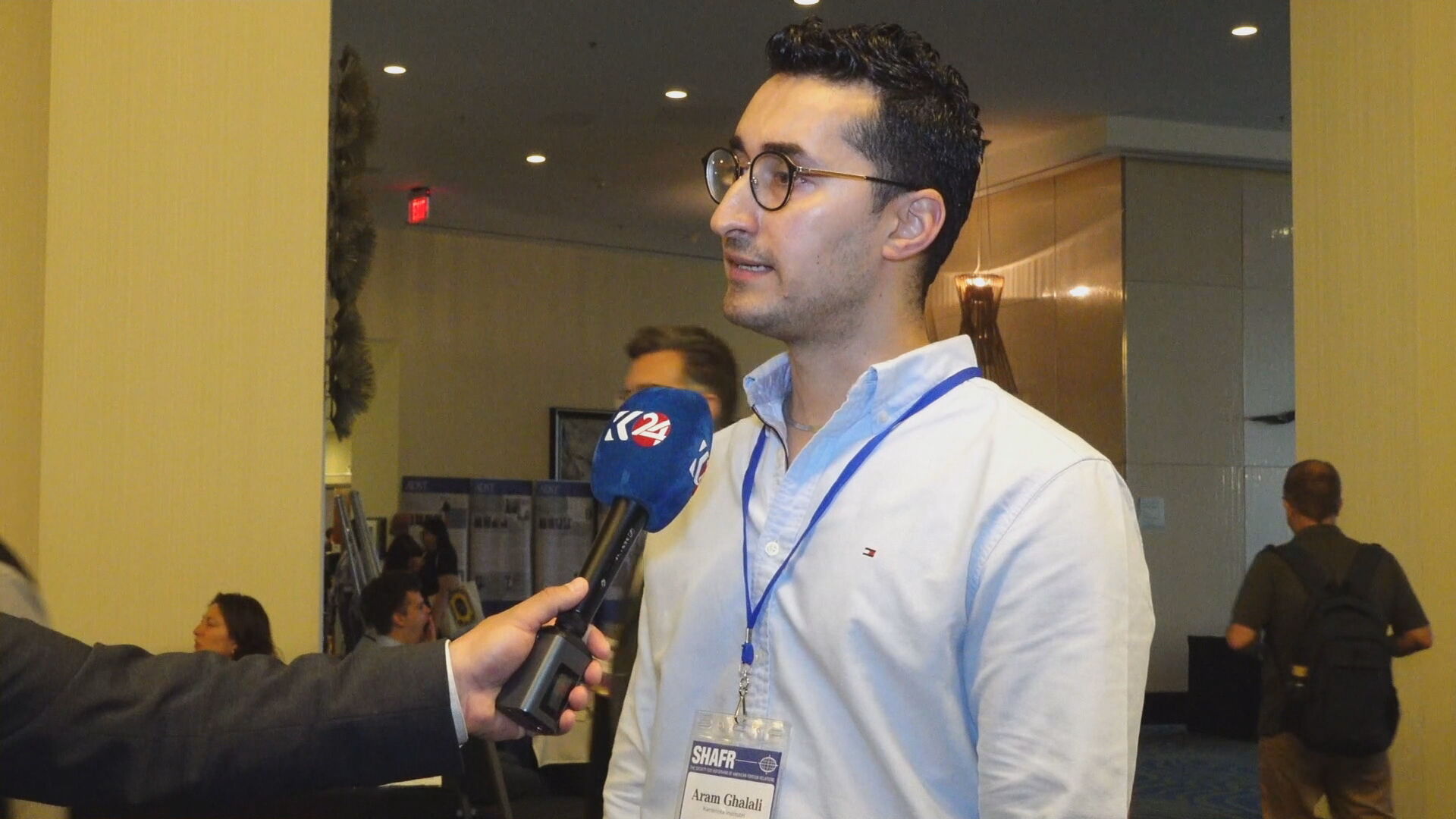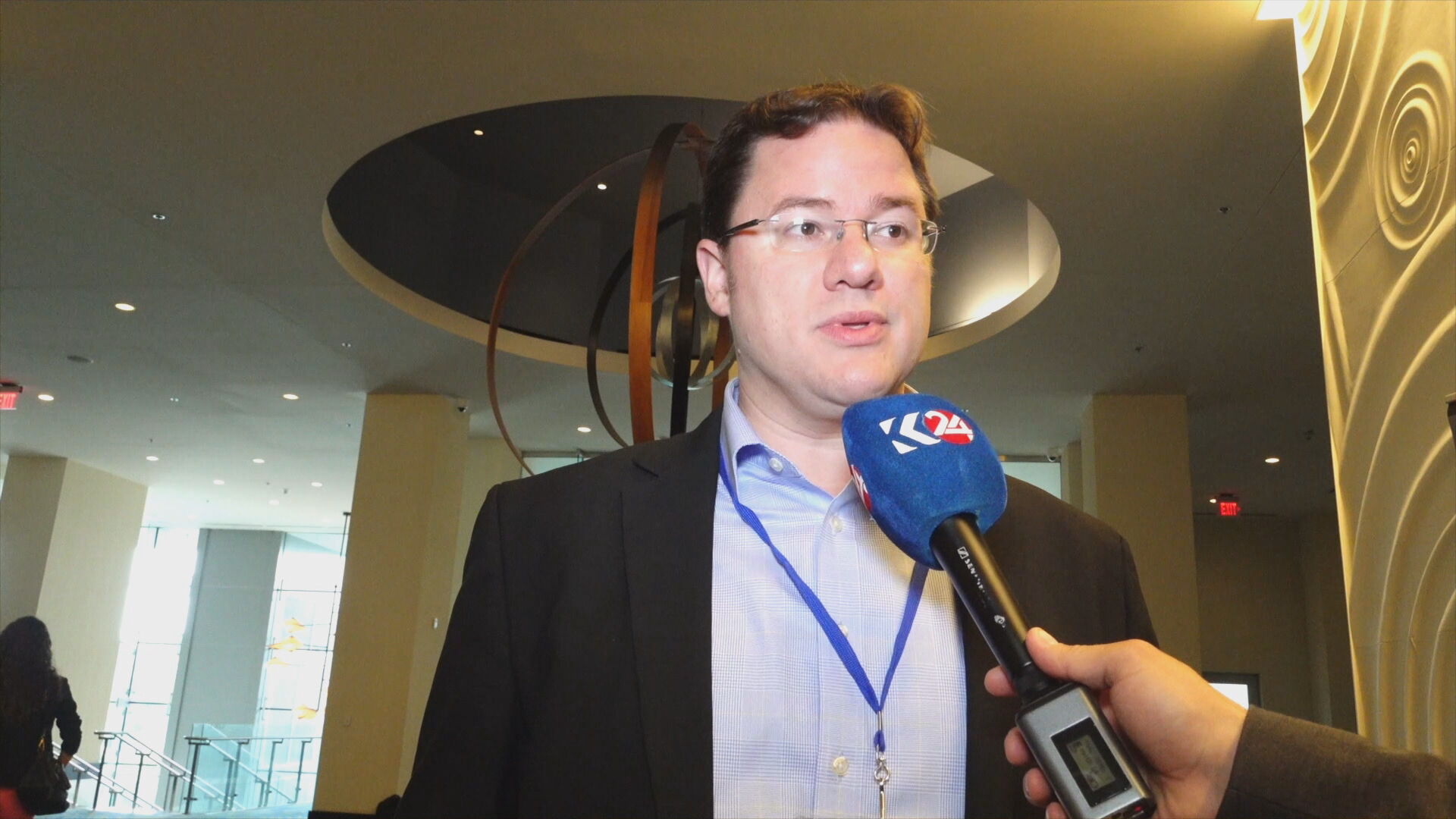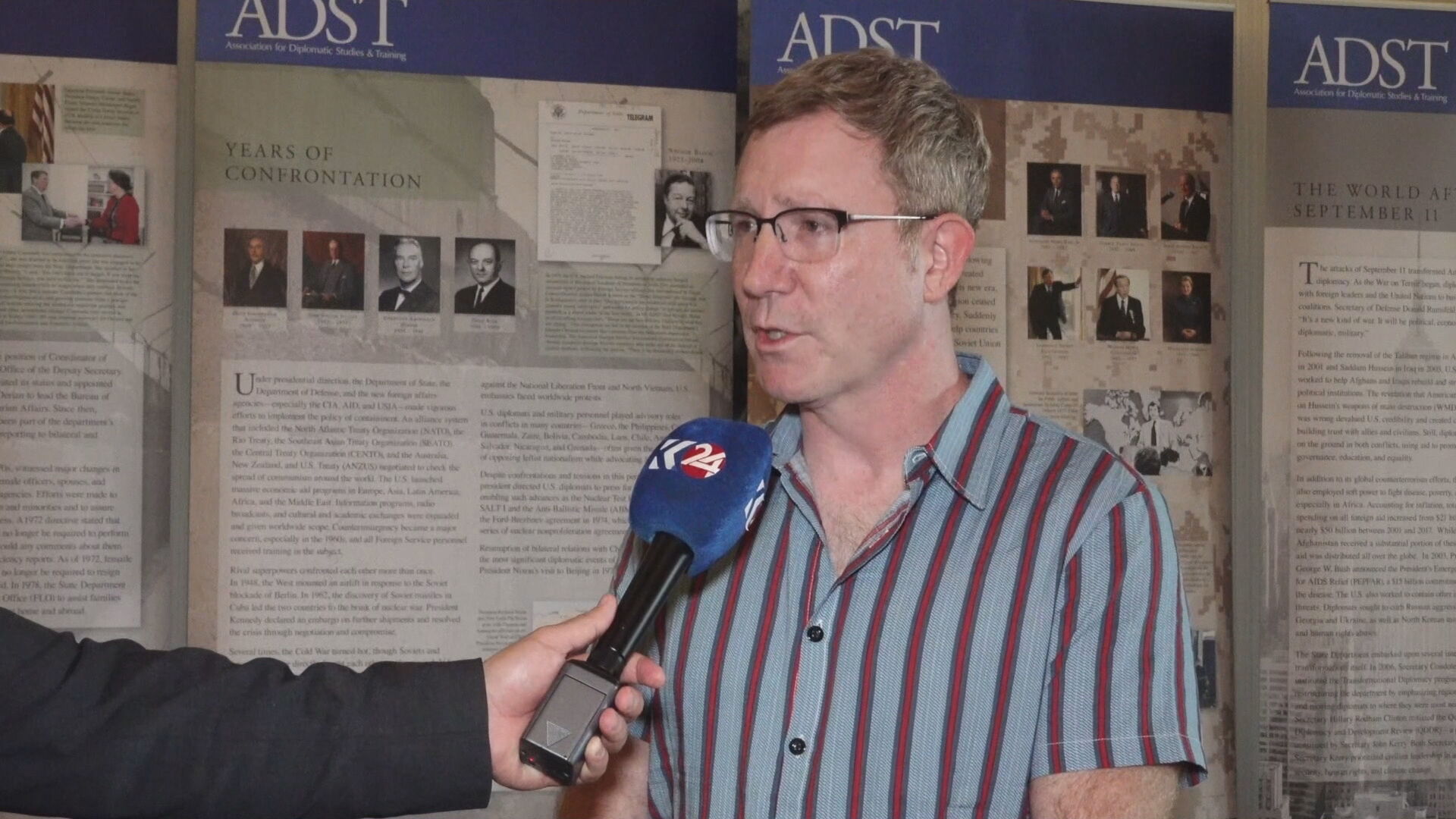Kurdish Researcher Reveals Lingering Chemical Impacts in Halabja, Decades After Attack
Harvard-led study finds sarin and mustard gas still contaminate Halabja soil 37 years after Saddam’s chemical attack. Dr. Aram Ghalali, in an interview with Kurdistan24's Issa Hassan, urges global recognition of the massacre as genocide. Survivors suffer ongoing health effects.

By Kamaran Aziz
ERBIL (Kurdistan 24) — A groundbreaking study led by Kurdish scientist Dr. Aram Ghalali, who is affiliated with both Harvard Medical School and Karolinska Institutet, has uncovered persistent health and environmental consequences from the 1988 chemical attack on Halabja by Saddam Hussein's Baathist regime.
The research, spanning over a decade, is the first of its kind to demonstrate that sarin and mustard gas remain embedded in the city’s soil and continue to pose public health risks 37 years after the atrocity.
Speaking to Kurdistan24's correspondent Issa Hassan, Dr. Ghalali said: “In our study, we aimed to identify the long-term impact of sarin and mustard gas on soil, nature, and the human body—especially in Halabja, where life continues but faces ongoing health risks. Every Kurd should strive to make Halabja the global symbol of chemical weapon use.”
The study, conducted in the Karolinska Institute, Sweden, analyzed soil samples, medical records, and environmental data, revealing that toxic residues of chemical agents still linger in the region. Ghalali, who has specialized in cancer research, emphasized that many residents continue to suffer from chronic respiratory and neurological illnesses, conditions linked directly to exposure to chemical agents.
The Halabja massacre of March 1988 remains one of the most horrific chemical attacks on civilians in modern history.
Over 5,000 people were killed, and thousands more suffered long-term injuries when Iraqi forces deployed chemical weapons in the Kurdish city. Despite overwhelming evidence, the international community has yet to officially recognize the atrocity as genocide.
Asher Orkaby, a historian and instructor at Harvard University, emphasized Halabja’s lasting place in global memory: “Halabja is one of the largest attacks ever on a civilian population at any time in the 20th and 21st centuries, perhaps up until the Syrian civil war. Halabja is synonymous with the horrors of chemical warfare, and chemical attacks on civilian populations.”

Aaron B. O’Connell, Associate Professor of History at Austin University and a leading member of the Society for Historians of American Foreign Relations, also pointed to the broader significance of such atrocities in the study of international history. “Even though we’re mostly Americans, we have students and scholars from all over the world... If it has to do with U.S. foreign relations and their history, we study it,” he said, underlining the global academic interest in incidents like Halabja.

While Kurdish academics and historians have long described the Halabja massacre as genocide, the study adds a new layer of scientific evidence that substantiates these claims. Foreign scholars, too, have increasingly recognized the systematic targeting of Kurdish civilians by Saddam Hussein's regime as genocidal in nature.
The 1925 Geneva Protocol prohibits the use of chemical and biological weapons in war. Yet, Halabja remains a tragic example of this norm's violation, where a civilian population was subjected to mass killing with little lasting accountability for the perpetrators.
Dr. Ghalali hopes his findings will contribute to renewed international attention and lead to the formal recognition of the Halabja massacre as a war crime and act of genocide. “We must not allow the passage of time to erase the suffering of our people,” he stated.
Kurdistan24 will continue to follow developments related to the international recognition of the Halabja massacre and the ongoing health implications for its survivors.
Kurdistan24’s U.S. correspondent Issa Hassan contributed to this report.
Updated. Corrections were made on Tuesday, July 1, 2025, at 11:32 AM.
